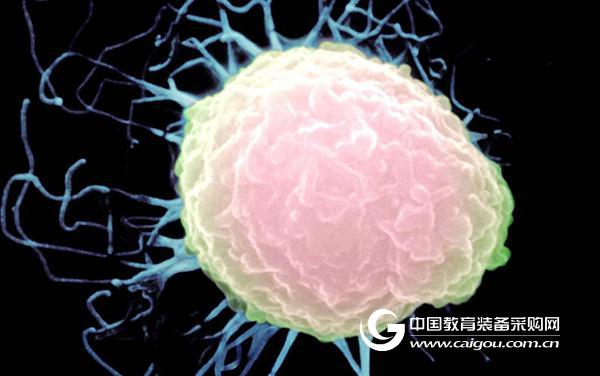A "switch" for the proliferation of PD-1T cells, which can be used to treat lymphoma
Guide A research team at the Technical University of Munich in Germany found that the PD-1 is also the "emergency cut-off switch" for the T cells themselves. The findings may lead to a new treatment to treat T-cell non-Hodgkin's lymphoma caused by immune cell defects. The immune checkpoint is a protective molecule in the human immune system, which acts like a brake to prevent inflammatory damage caused by excessive activation of T cells. The miraculous effect of cancer immunotherapy makes the immune checkpoint molecule PD-1 widely known. Blocking tumor cells to block the PD-1/PDL-1 pathway of T cells can restore the sensitivity of the immune system to tumor cells. A new study published in Nature on October 7 found that PD-1 is also a "switch" in T cells that controls its own reproduction, a feature that can be used to treat lymphoma in the immune system. Causes of T cell non-Hodgkin's lymphoma In vivo, T cells are usually responsible for detecting and killing cancer cells. However, problems arise when the T cells themselves produce defects in the genome. If the defect affects the genomic region responsible for cell growth, the T cell itself can become an uncontrollable dividing tumor cell. This is why T cell non-Hodgkin's lymphoma occurs. This aggressive lymphoma treatment has a very low success rate. Professor Jürgen Ruland and his team are studying the molecular mechanisms of these cancers for more effective treatment. PD-1 plays a switching role in T cell self-reproduction Scientists have found that defective T cells have an emergency shutdown switch to further confirm that protein PD-1 can shut down defective T cells at an early stage, preventing them from becoming tumor cells. This is the first time researchers have discovered PD-1 in a mouse model of T cell non-Hodgkin's lymphoma. This finding also explains the mechanism by which the PD-1 gene is activated when the protooncogene responsible for cell growth activity is defective, thereby inhibiting the effects of these genes with additional proteins. Therefore, it acts to turn off the switch to prevent uncontrolled growth of defective T cells. The anti-cancer effect of immunological checkpoint inhibitors is to inhibit T cells' external signals and activate T cells; this newly discovered switch is a switch that activates PD-1 to turn off T cell proliferation by targeting T cell self-deficiencies. Patient data and hope for medication By investigating the genetic dataset of 150 patients, scientists have also successfully solved the problem of why many T-cell non-Hodgkin's lymphomas are so aggressive. According to Tim Wartewig, the first author of the study, "Based on our previous results, we deliberately closely followed PD-1. In more than 30% of patients, the genomic region producing PD-1 has changed. This catastrophic The consequence is cancer, PD-1 no longer acts as an 'emergency shutdown' switch, and defective T cells multiply out of control." Professor Jürgen Ruland said: "These patients can reverse the signal loss of PD-1 by drug therapy, thereby destroying tumor cells. This type of drug is already present in other forms of cancer. In our opinion, T cells should also be considered. Non-Hodgkin's lymphoma medication." Scientists recommend studying individual differences in tumors before deciding which drug to take. Shanghai Chuangsai Technology has excellent performance, interleukin cytokines, fetal bovine serum, electrophoresis equipment scientific instruments, raw material drug standards, chemical reagents, cell culture consumables, Shanghai Chuangsai, mass products special promotions, welcome to inquire! Single Bed With Pull Out Bed,Rollaway Beds Bed Frames,King Beds And Bed Frames,Single Bed Frame With Storage Foshan Qiaotai Furniture Products Co., Ltd. , https://www.qiaotaifurniture.com